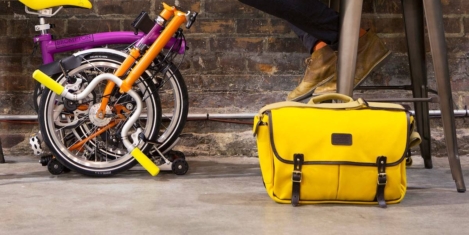August 23, 2017
People claim to be more productive outside the traditional office, claims report
 According to FlexJobs’ 6th annual survey of more than 5,000 respondents interested in flexible working, 66 percent of workers think they would be more productive telecommuting than working in a traditional office environment. Fewer interruptions from colleagues (76 percent), fewer distractions (76 percent), reduced stress from commuting (70 percent), and minimal office politics (69 percent) are the top reasons people prefer their home office. Only 7 percent of workers say they are most productive in the office during regular hours. The study claims that respondents think they would not only become more productive if allowed to work remotely, but also that they would be more loyal to their employers and would have stronger working relationships.
According to FlexJobs’ 6th annual survey of more than 5,000 respondents interested in flexible working, 66 percent of workers think they would be more productive telecommuting than working in a traditional office environment. Fewer interruptions from colleagues (76 percent), fewer distractions (76 percent), reduced stress from commuting (70 percent), and minimal office politics (69 percent) are the top reasons people prefer their home office. Only 7 percent of workers say they are most productive in the office during regular hours. The study claims that respondents think they would not only become more productive if allowed to work remotely, but also that they would be more loyal to their employers and would have stronger working relationships.











 The quality of the cycling facilities being offered by many workplaces are currently falling short and risk undermining a Government drive to increase the number of people cycling to work; as according to new research published by the British Council for Offices, 16 percent of office workers claim that inadequate facilities are discouraging them from considering commuting by bike. In April, the Department for Transport stated an aim to double the number of cycling stages, defined as a change in the form of transport as part of a longer “trip” (e.g. cycling to the train station before catching a train to work), from 0.8 billion stages in 2013 to 1.6 billion in 2025. However, new research, commissioned by the British Council for Offices and carried out by Remit Consulting, finds that whilst 83 percent of workplaces in the UK offer some form of bike storage, less than half (47 percent) of this is covered and secure. Improved parking facilities could help increase numbers of those cycling to work, with 16 percent of office workers surveyed saying that better bike storage would encourage them to do so.
The quality of the cycling facilities being offered by many workplaces are currently falling short and risk undermining a Government drive to increase the number of people cycling to work; as according to new research published by the British Council for Offices, 16 percent of office workers claim that inadequate facilities are discouraging them from considering commuting by bike. In April, the Department for Transport stated an aim to double the number of cycling stages, defined as a change in the form of transport as part of a longer “trip” (e.g. cycling to the train station before catching a train to work), from 0.8 billion stages in 2013 to 1.6 billion in 2025. However, new research, commissioned by the British Council for Offices and carried out by Remit Consulting, finds that whilst 83 percent of workplaces in the UK offer some form of bike storage, less than half (47 percent) of this is covered and secure. Improved parking facilities could help increase numbers of those cycling to work, with 16 percent of office workers surveyed saying that better bike storage would encourage them to do so.



















August 14, 2017
Seven ways in which flexible working is making our lives more rigid
by Mark Eltringham • Comment, Flexible working, Technology
(more…)